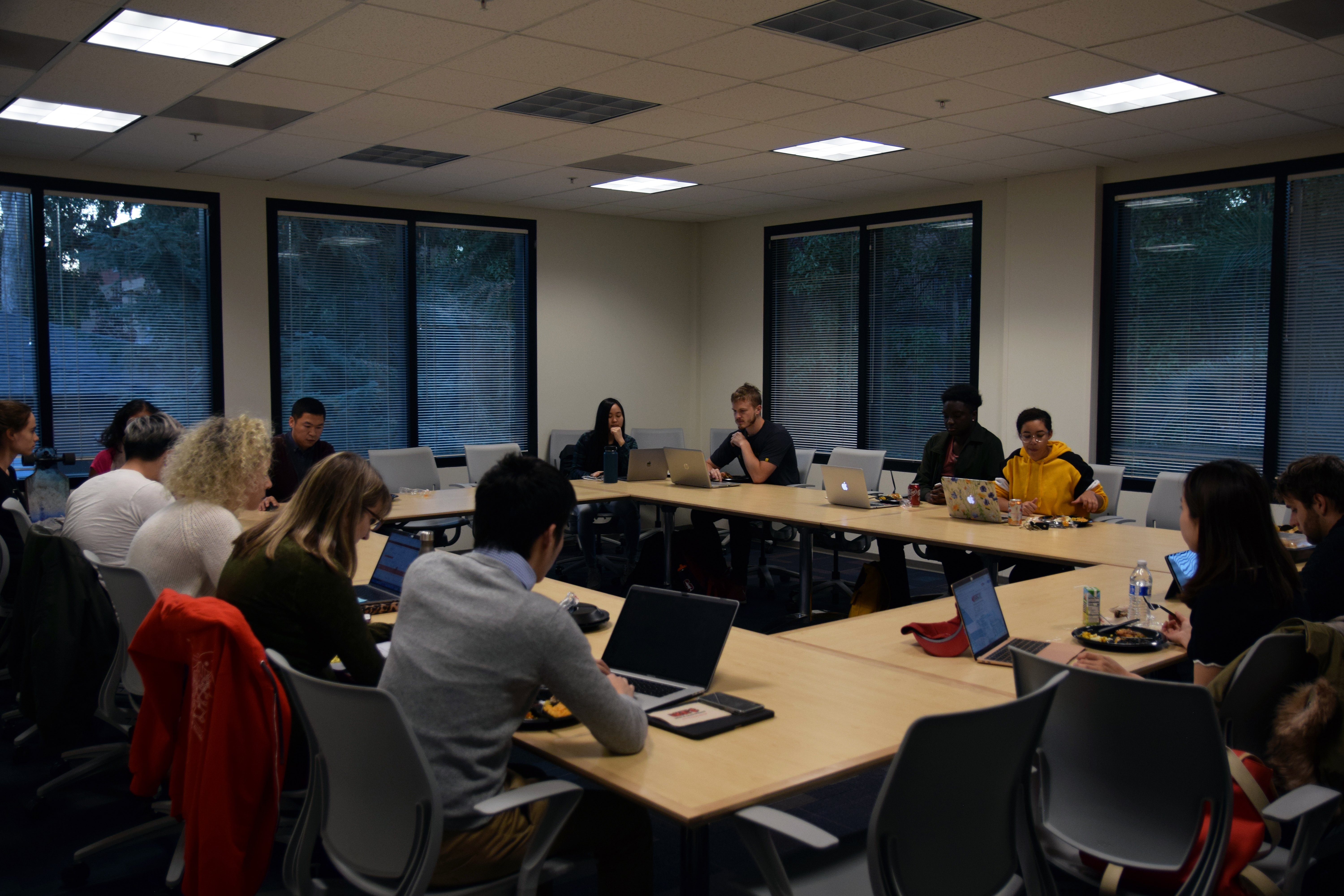During Wednesday night’s Graduate Student Council (GSC) meeting, councilors debated the effects of diversity on faculty and students’ mental health, even entertaining the idea of faculty tenure being given on the basis of students’ mental health. Additionally, the Council discussed issues regarding class registration and updates on the Escondido Village Graduate Residences (EVGR).
Mental health
Fourth-year immunology Ph.D. student Lawrence Bai and fourth-year theater and performance studies student Kari Barclay announced plans to meet with Vice Provost for Student Affairs Susie Brubaker-Cole to organize events around mental health on campus.
“We’re just going to brainstorm some ideas about what kinds of workshops we can have to help students’ mental health,” Bai said.
Bai also mentioned the relevance of a biosciences town hall last Thursday, at which four main topics were addressed: diversity and inclusion, mentorship, mental health and affordability.
Bai described several proposals from the town hall regarding mental health, including the idea of faculty tenure being based on the quality of their students’ mental health.
“Faculty diversity is also still a very hot topic,” he said. “I’m teaching a course on diversifying graduate admissions, and I think this could be applied to faculty as well.”
To increase diversity among students, Bai is working towards improving transparency in the graduate student admissions process and will soon be meeting with the associate dean of diversity and inclusion to propose changes to graduate student applications.
“I think the graduate student application sections regarding race and ethnicity are not comprehensive enough,” Bai said. “I wanted to add more particularly under the categories Latinx and Asian, and hopefully, this will further extend to diversify faculty.”
Registration issue
Second-year electrical engineering Ph.D. student Libby Zhang presented two requests from graduate students of the Stanford School of Engineering: ensuring that students are automatically registered for eight units of credit and allowing for the addition of research units after the final study list deadline.
“Normally, after the final study list deadline, we have to submit any requests for changes to the faculty senate,” Zhang said. “This can take up to three weeks.”
The graduate engineering students’ main concern is that although they are currently able to withdraw from classes, doing so would drop them below the required eight units, which would cause them to lose their fellowships, she said.
Zhang stressed that this is a common dilemma for many engineering students because many of them end up taking on research loads that are heavier than they initially expected.
Sixth-year languages and literature Ph.D. student Gabby Badica pointed out that another issue is that international students could potentially lose their visa status if they drop below eight units.
Addressing this issue could benefit graduate students beyond the engineering school, Barclay said. However, in order to make the visa issue relevant, the number of units would have to be tailored to each unique graduate school’s policies.
Several councilors agreed that a common solution to this issue would be to lower the number of required units.
Second-year computer science master’s student Adam Keppler also proposed pushing back the final study list deadline in order to provide students with more flexibility in deciding on their schedules.
Zhang has not yet talked to any University faculty about these issues, but she plans to do so in the near future.
R&DE updates
The new Escondido Village Graduate Residences (EVGR) were the sole focus of this week’s R&DE updates.
“One thing that we want students to keep in mind is that with EVGR, we are planning to house 75% of Stanford graduate students, which is much greater than the number of students we housed this year,” R&DE representative and spokesperson Jocelyn Breeland said.
During the 2018-19 housing cycle, 1,200 graduate students were unable to get off-campus housing. However, with the unveiling of the EVGR residences in August, 2,400 additional students will be housed on campus. This results in a net increase of 1,200 spaces for students to live in, the R&DE representatives stressed.
Contact Camryn Pak cpak23 ‘at’ stanford.edu
